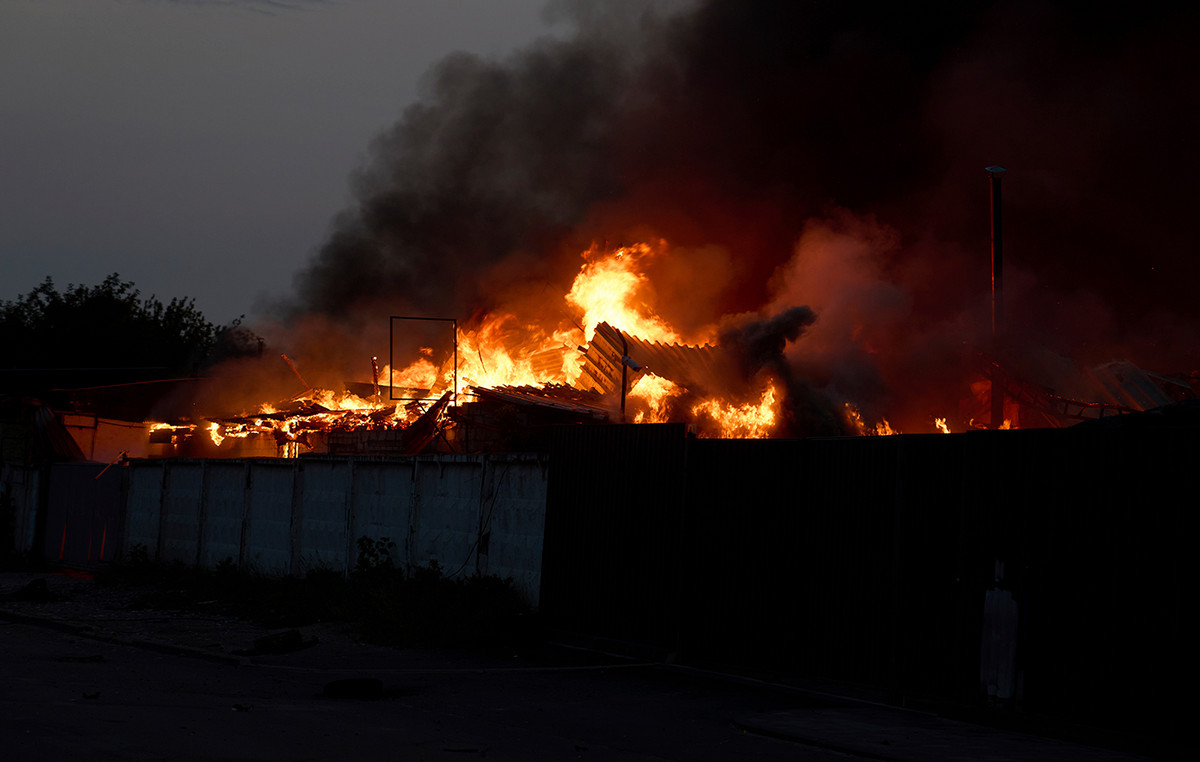Chinese real estate developer Evergrande is trying to reassure investors about the impact of an official order to demolish a few dozen buildings in China.
Chinese media reported over the weekend that authorities in Hainan province — a tropical island off the coast of southern China — had ordered Evergrande to demolish 39 buildings, saying the building permits had been obtained illegally.
The company acknowledged the request in a WeChat post on Monday night (3rd), but added that it has not affected other buildings on the same property project, which involves around 61,000 owners.
The 39 buildings are part of Evergrande’s massive Ocean Flower Island project in Hainan, in which the company has invested nearly $13 billion over the past six years.
The company suspended trading in its Hong Kong shares on Monday. In a document sent to the Hong Kong Stock Exchange on Tuesday (4), the company said it would resume negotiations and confirmed that it would “actively communicate” with authorities about the Ocean Flower Island project and “would solve the problem of in a proper way”.
Stocks rose as much as 10% after trading began in the early afternoon, before reducing gains. They rose 1.3%.
In Tuesday’s lawsuit, Evergrande also said it achieved contract sales of 443.02 billion yuan (US$70 billion) for 2021. That’s a 39% drop from the 2020 sales figure.
And with regard to liquidity, the company said it will continue to “actively maintain communication with creditors, striving to resolve risks and safeguard the legitimate rights and interests of all parties.”
Evergrande — which was China’s second-largest real estate developer by sales in 2020 — is suffering from more than $300 billion in total liabilities.
She has been struggling for months to raise money to pay creditors, and the company’s president, Xu Jiayin, is reported to be selling personal assets to support her finances. But that doesn’t seem enough to avoid default.
In December, Fitch Ratings said the company had defaulted on its debt, a downgrade the credit rating agency said reflected Evergrande’s inability to pay interest due that month on two dollar-denominated bonds.
Analysts have long feared that Evergrande’s collapse could unleash broader risks to China’s property market, harming homeowners and the financial system in general. Real estate and related sectors represent up to 30% of the country’s GDP.
The US Federal Reserve warned in November that problems in the Chinese housing market could harm the global economy.
There is already plenty of evidence that Beijing is taking a leading role in guiding Evergrande through restructuring its debt and expanding business operations.
But analysts warned, however, that the housing crisis remains an imminent threat to China.
This content was originally created in English.
original version
Reference: CNN Brasil
I am Sophia william, author of World Stock Market. I have a degree in journalism from the University of Missouri and I have worked as a reporter for several news websites. I have a passion for writing and informing people about the latest news and events happening in the world. I strive to be accurate and unbiased in my reporting, and I hope to provide readers with valuable information that they can use to make informed decisions.







